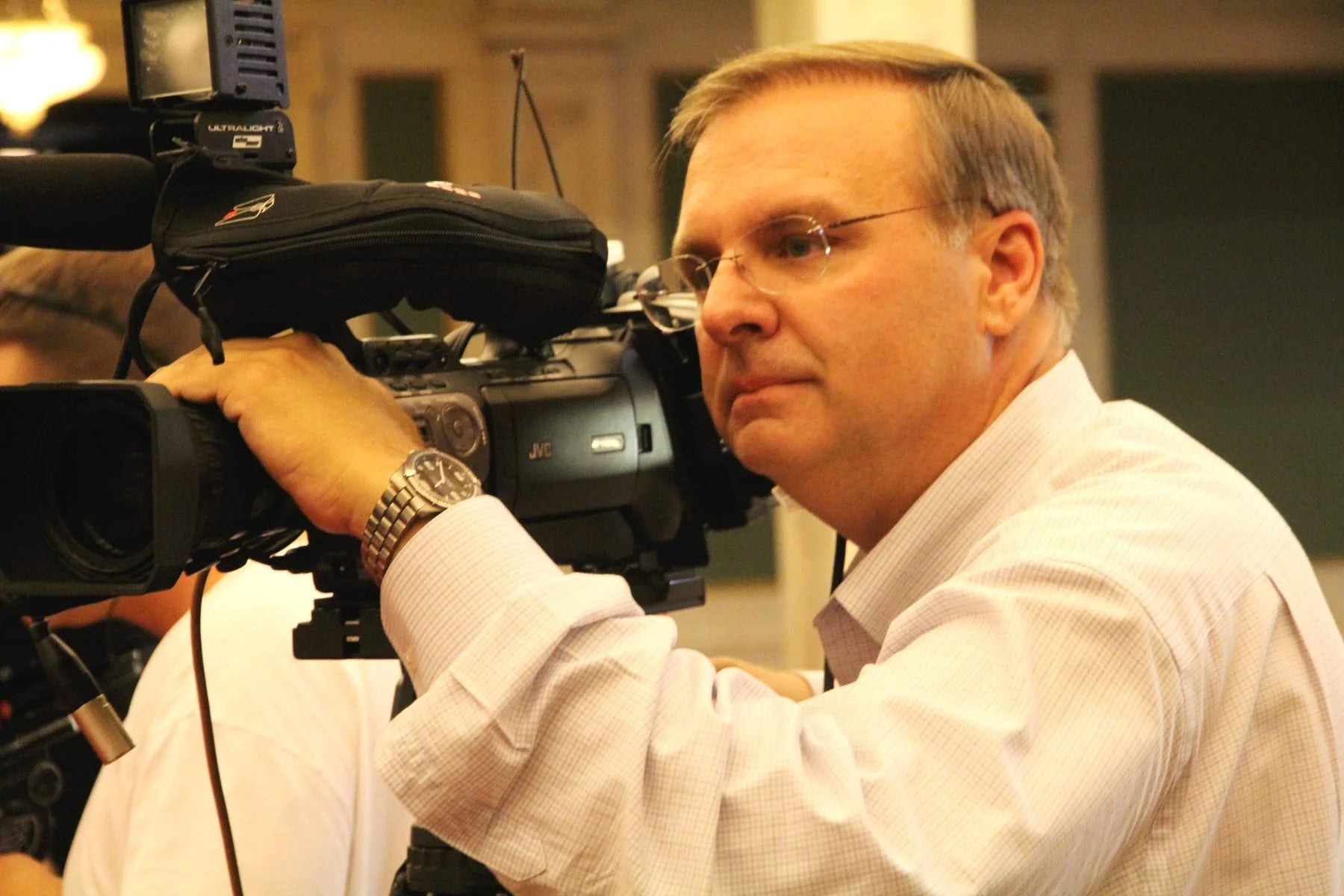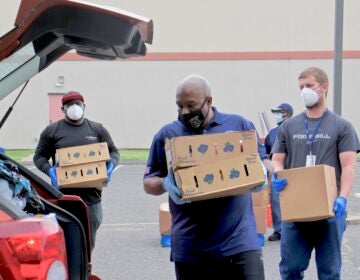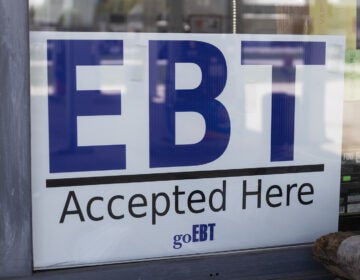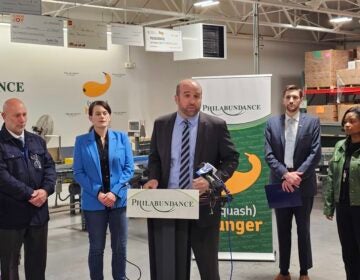Food distribution hub gets a million dollars to fund repairs and go solar
A solar upgrade is on the way for a food distribution hub in Philly.
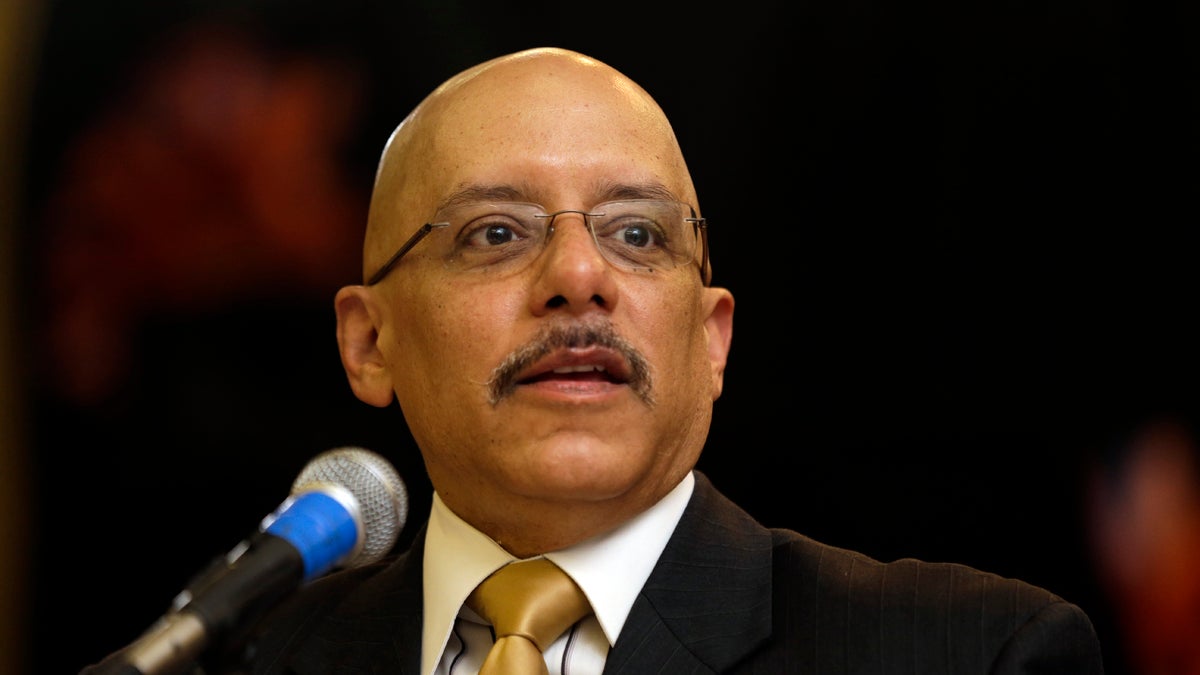
State Sen. Vincent Hughes, D-Philadelphia, speaks during a news conference at Andrew Jackson Elementary School in 2013 in Philadelphia. (Matt Rourke/AP Photo)
A major grant will help a Philadelphia group continue to provide food through the pandemic.
State Senator Vince Hughes presented a mock check for a million dollars of state funding to the Share Food Program to repair their warehouse and install solar panels.
“I’ve never seen so many fresh vegetables, all around the city and the region, asparagus, all that stuff and it’s just wonderful,” said Hughes. And the pressure on the places has been dramatic, and we need to invest in those entities, invest in that infrastructure.”
Hughes says the grant was an easy one to gain from the Wolf administration. He presented the check to Share Food Program Executive Director George Matysik during a virtual press conference. He says the money is not the first state grant for the program, and any additional funding is essential especially in this time of increasing need.
The funding will cover repairs at the program’s facility at 29th and Hunting Park Avenue, which has undergone increased demand due to the pandemic. Gregory Allen of Overbrook West Neighbors says they are among the million people who have relied on the facility.
“[At] twenty-five thousand produce boxes that feed a family of four a meal, we have given something on the order of 100,000 meals to the people of Overbrook,” said Allen.
Lucinda Hudson of the Parkside Association says the food bank has helped the community considerably during the pandemic.
She says before her neighborhood had a supermarket, they relied on Share to provide groceries to people in need and others who did not have the ability to drive to a market, which could have been miles away.
“Parkside Association has been a client of the Share Program since 1997,” said Hudson. “We were a food desert, so we depended heavily on the Share program.”
The solar panels will offset the cost of electricity for running refrigeration which is crucial to the food distribution process. The facility has had to increase its number of the large refrigerators to handle the additional volume of fresh food and produce necessary for distribution to those in need during the pandemic.
The cost of electricity to run the units is a big slice of the nonprofit’s budget. Solar panels should cut down on those expenses, allowing more money to be put towards acquiring and distributing food.
 WHYY is one of over 20 news organizations producing Broke in Philly, a collaborative reporting project on solutions to poverty and the city’s push towards economic justice. Follow us at @BrokeInPhilly.
WHYY is one of over 20 news organizations producing Broke in Philly, a collaborative reporting project on solutions to poverty and the city’s push towards economic justice. Follow us at @BrokeInPhilly.

Get daily updates from WHYY News!
WHYY is your source for fact-based, in-depth journalism and information. As a nonprofit organization, we rely on financial support from readers like you. Please give today.


